Special Complete Dentures
Special Complete Dentures Definitions
Tooth-Supported Overdenture:
“A dental prosthesis that replaces the lost or missing natural dentition & associated structures of the maxilla &/or mandible & receives partial support & stability from one or more modified natural teeth”
Special Complete Dentures Important Notes
Disadvantages Of Immediate Dentures:
- The fit, appearance, or comfort is difficult to predict
- Often require tissue conditioner during the healing phase
- Need a definite reline
Read And Learn More: Prosthodontics Question And Answers
Advantages Of Immediate Dentures:
- The patient’s appearance is maintained
- Circumboreal support, muscle tone, the vertical dimension of occlusion, jaw relationship, and face height can be maintained
- The tongue will not spread due to the loss of teeth
- Less post-operative pain
- Easier to duplicate the natural tooth shape and position
- The patient is likely to adapt more easily to dentures
The Treatment Procedure For An Immediate Denture:
- The posterior teeth are extracted and allowed to heal
- Impression and cast are made
- Anterior teeth on the master cast are broken away, trimmed up to the cervical margin, and smoothened.
- The ridge lap (cervical) portion of the artificial teeth is trimmed and arranged on the master cast.
- Artificial teeth are arranged over the area where the teeth are to be extracted.
- The teeth arrangement should be in harmony with the existing teeth as well as the prosthetic teeth.
- The denture is flashed, dewaxed, packed, processed, and finished.
- During the insertion appointment, the remaining anterior teeth are extracted as traumatically as possible, preserving the soft tissue and bone.
- The finished denture is seated in the patient’s mouth.
Immediate Dentures Meaning
Overdentures:
Advantages of Overdentures:
- Maintains the integrity of the residual ridge
- Improves stability and support
- Improved proprioception
If the abutment fails, the overdenture can be used as a conventional denture
Types Of Overdentures:
- Conventional immediate denture
- Interim or transitional immediate denture
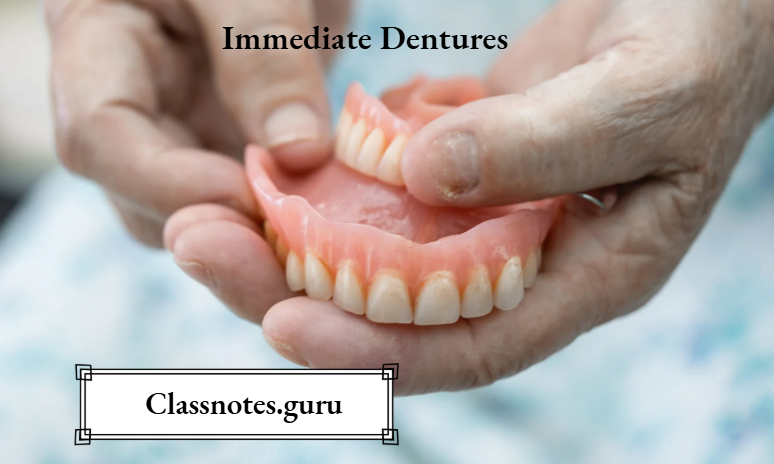
Special Complete Dentures Long Essays
Question 1. Define an immediate complete denture. Write in detail the steps in making it.
Answer:
Definition Of Immediate Complete Denture:
“A complete or removable partial denture constructed for insertion immediately following the removal of natural teeth.”
Steps Of Immediate Complete Denture:
- Making of alginate impression
- Duplicating it
- Pouring of the cast(master cast) for one of the impressions
- It is used for preparing the baseplate, rims, jaw relation & teeth arrangement
- In other words, pour molten wax into the teeth to be extracted
- After it cools, pour the duplicating cast
- It is used for the processing of dentures
- Fabricate baseplate & occlusal rims over the master cast. Record jaw relation
- Teeth arrangement is done over it. Try in verification is done
- Shift the denture to a refractory cast. Processing of the denture is carried out
- Atraumatic extraction of the tooth is to be done
- Insertion of an immediate denture
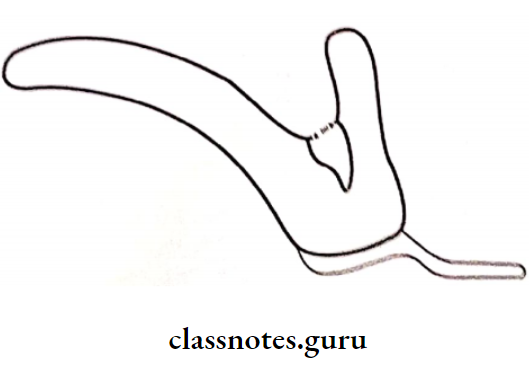
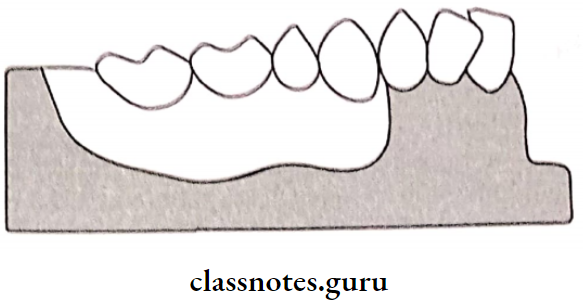
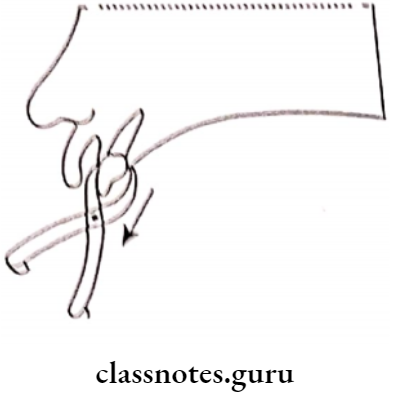
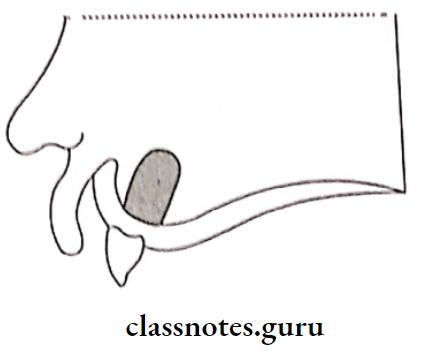
Special Complete Dentures Short Essays
Question 1. Single complete dentures.
Answer:
Types of Single Complete Dentures:
- Maxillary complete denture opposing a mandibular natural denture
- Maxillary complete denture opposing a mandibular partial denture
- Mandibular complete denture opposing a maxillary natural denture
- Mandibular complete denture opposing a maxillary partial denture
Indications of Single complete dentures:
- Inpatient with a jaw discrepancy
- In cleft patients
- Retrognathia mandible
Complete Immediate Denture Procedure
Disadvantages of Single complete dentures:
- Malposed, unerupted teeth interfere with balanced occlusion
- The presence of the lower anterior causes difficulty in aesthetics. Acrylic opposing natural teeth causes abrasion of the acrylic
- Porcelain opposing natural teeth causes abrasion of natural teeth
Complications of Single Complete Dentures:
- Combination syndrome
- Wear natural teeth
- Fracture of the
Question 2. Problems in single denture construction.
Answer:
- Malposed, tipped, or supra-erupted teeth in the lower arch will interfere with balanced occlusion
- It produces soreness, mucosal changes, and ridge resorption in the maxilla
- Maxillary denture tends to get displaced
- As the lower anterior is present in a fixed position, it is difficult to obtain an aesthetic tooth arrangement
- The use of acrylic teeth opposing natural teeth will produce abrasion of the acrylic teeth
- Use of porcelain teeth opposing natural teeth will produce abrasion of natural teeth
1. Problems In Maxillary Complete Denture Opposing Mandibular Partial Denture:
- Combination Syndrome:
- The patient tends to concentrate the occlusal load on the remaining natural teeth
- Results in more force acting on the anterior portion of the maxillary denture
- Increased resorption of the anterior part of the maxilla
- Labial flange will displace and irritate labial vestibule
- Posteriorly, there will be fibrous overgrowth in the maxillary tuberosity
- Wear Of Natural Teeth:
- Porcelain teeth lead to severe abrasion ofthe opposing natural teeth
- Denture fracture
- It occurs due to
- Excessive anterior occlusal load
- Deep labial frenum notches
- High occlusal load
Prosthodontics Notes on Immediate Dentures
2. Mandibular Single Denture:
- Mandibular Single Denture causes severe ridge resorption of the edentulous mandible because of
- The constant movement of the tongue
- Less denture-bearing area
Question 3. Requirements of an overdenture.
Answer:
Requirements Of Overdenture:
- Abutment teeth should be surrounded by healthy periodontium
- Maximum reduction of the coronal portion of the tooth. Endodontic treatment is required
- Internal attachment should not be present during tooth preparation
- Fluoride application
- Grossly destroyed tooth sleeve coping retainers
- Attachments for additional retention
- The motivation of the patient to maintain oral hygiene
- Recall appointments
- Regular fluoride application
Overdenture Patient Selection:
- Young patient
- Favorable psychological effect
Overdenture Abutment Selection:
- Periodontally sound
- Cuspids and bicuspids are frequently selected
- Free of caries
- Sufficient width of attached gingiva
- Ideal crown root ratio
Immediate Partial Denture
Question 4. Tooth-supported complete denture.
Or
Disadvantages of overdentures
Or
Indications and contraindications of overdentures
Answer:
Definition Of Tooth-supported complete denture:
“A dental prosthesis that replaces the lost or missing natural dentition and associated structures of the maxilla and or mandible and receives partial support and stability from one or more modified natural teeth”
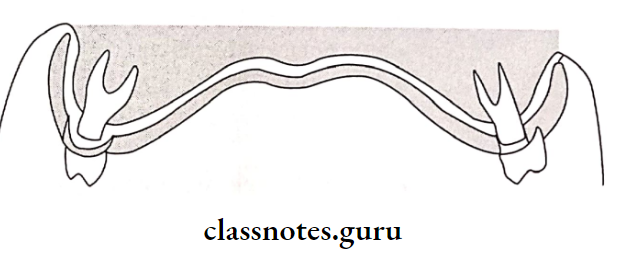
Advantages Of Tooth-Supported Complete Denture:
- Maintenance of the integrity of the ridge
- Improves stability and retention of denture. Improves proprioception
- Avoid psychological effects on the patient
- Universal accepted
- Can be relined
Disadvantages Of Tooth-Supported Complete Denture:
- Oral hygiene maintenance is required, as well as periodic fluoride application
- Frequent recall visits are required
- Expensive
- Not used in cases with
- Reduced interarch space
- Bony undercuts
- Periodontal breakdown of the remaining teeth
- Loss of remaining teeth
Indications Of Tooth-Supported Complete Denture:
- Aesthetics
- Cleft palate
- Maxillofacial trauma
- Worn-out denture Congenital anomalies
- Abnormal jaw size and position
Contraindications Of Tooth-Supported Complete Denture:
- Poor periodontal status Carious tooth Old age
- Improper crown root ratio
- Anterior teeth due to the resorbed alveolar ridge
- Gingival recession
- Pupal calcification
Special Complete Dentures Short Question And Answers
Question 1. Advantages of an immediate denture.
Answer:
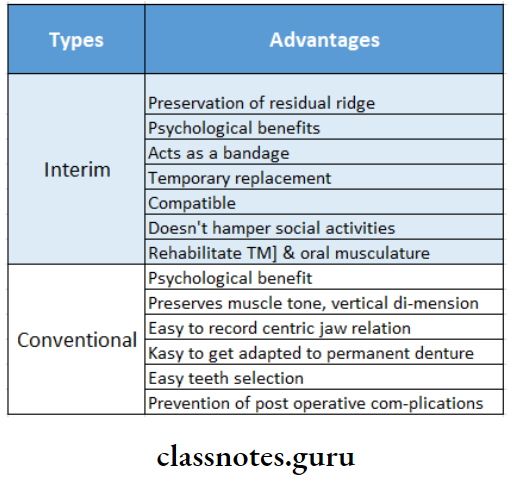
Question 2. Advantages of over-dentures
Answer:
- Maintains the integrity of the residual ridge
- Improves the retention and stability of the denture
- Improves proprioception
- Helps in regulating biting force over the denture
- Has a psychological effect on the patient
- Can be used universally
- Even if there is abutment failure, the abutment can be extracted and the over-denture can be relined
Question 3. Types of bar-retained overdentures
Answer:
Types Of Bar-Retained Overdentures:
- Bar-retained overdenture implant treatment involves the placement of 3-4 im- plants and the attachment of a customized bar.
- Bar-retained overdentures bar provides rigid support through and series of clips to the denture that fits over the top of the bar.
- The bar retained overdenture treatment can be used in both the upper and lower jaws.
- Bar-retained overdentures allow the denture to be removed from the mouth for cleaning.
- Patients also have to brush the bar, which remains attached to the implants in the mouth.
- In the upper arch, the bar over the denture often allows for a “horseshoe design” to be adopted ,thereby eliminating the denture covering the palate.
- After the implants have been integrated and the customized bar is fabricated and screw-retained to the lower implants, this bar cannot be removed by the patient and needs to be brushed and cleaned daily just like teeth.
- The bar provides the retention for the denture, which will fit over the top of the bar.
Question 4. The disadvantage of an immediate denture.
Answer:
Disadvantages of An Immediate Denture
- Time-consuming
- Expensive
- Difficult to record centric relation and occlusion
- Try if not possible
- Difficulty in speech and mastication
- Difficult to adapt to new dentures
Immediate Denture Fabrication Steps
Special Complete Dentures Viva Voce
- The canine is best over a denture abutment
- Periodontal disease is the most common cause of loss of abutment in overdenture
- Regular follow-up examination of the overdenture is needed at intervals of 3–6 months
- 24 hours are necessary to wear an immediate denture just after extraction
- After 7 days of extraction, an immediate denture can be removed during the night.
